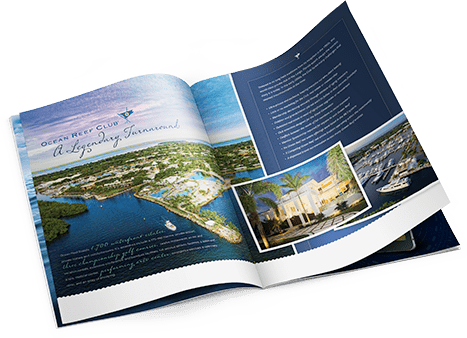Every year ULI hosts an Annual Real Estate Summit in Miami, Florida, and other major cities to examine the future of real estate, trends, and opportunities. This year the 2021 ULI Florida Real Estate Summit in Miami was altered last minute to a virtual format due to concerns of the spreading Delta variant uprise. The Urban Land Institute (ULI) is a global, nonprofit research and education organization. It’s the oldest, largest network of cross-disciplinary real estate and land-use experts in the world who share in the vision of the ULI mission to “shape the future of the built environment for transformative impact in communities worldwide”.
Here are the most important takeaways shared by Cotton & Company’s Executive Vice President, Karen Cantor.
Unprecedented Migration to the Sunshine State
The residential growth of Florida, known as the Sunshine State, has been trending upward over the past 10 years. According to the U.S. Census, Florida’s population grew by 2.7 million or 14.6% from 2010 to 2020. Estimates state from 845 to nearly one thousand people daily are moving to Florida.
COVID -19 has had a never-before-seen effect on typical residential migration cycles. Historically, Florida was a mecca of reprieve from winter’s harshness with an influx of vacationers and seasonal residents from the Northeast, Midwest, and Canada. More recently, Latin America has become a feeder of both year-round visitation and homebuyers in Florida.
What has changed the landscape dramatically, is the number of people buying primary residences in Florida. Individuals fled from the density of large cities due to the Pandemic. Originally, the intention was to visit for a short period to get away while awaiting things to “get back on track”. But visitors found South Florida to offer a great working environment, appealing warm climate, and family-friendly lifestyle in the long term instead of temporarily. In 2020, Florida became the most moved-to state in the country.
Considering their discovery, many companies decided to set up regional headquarters or relocated their offices entirely from Palm Beach southward. The Tampa Bay area, Jacksonville, and Orlando are also seeing the same growth pattern. This is creating a huge demand for office space being filled at high rates of speed. In turn, single-family homes and new condominiums have been sold out. Even multimillion dollars condos in Miami Beach, Brickell, Biscayne Bay, and Palm Beach are selling out quickly. And rental communities are finding themselves 95% occupied at the highest rates of all time with no concession fees. Even the highest-priced Florida real estate properties are still considered more affordable than many other states.
Affordability Has Become a Major Issue
As the demand is consumed, we have had a growing inequality over the past decade between the wealthy and the poor. Affordable housing has become more important than ever for the needs of the working class, middle, middle lower-class, and the poor. Production of this type of housing has suffered immensely. Shortages of building supplies have caused builder materials costs to skyrocket. Developers can no longer afford to build “affordable housing”due to rising costs. The federal government will need to step in to provide programs and resources to counter this problem, including Low Income Housing Tax Credits or Section 8 vouchers.
Commercial Real Estate Has Been Re-Energized
The global business landscape continues to be disrupted and re-shaped. The Real estate industry needs to shift, innovate, and transform in response. Florida has taken center stage as a magnet market attracting significant business relocations and is seeing unmatched investor interest in the state’s unique cities and suburbs.
Alan Kennedy, Managing Director for Southeast Region at Hines said, “With the onset of the pandemic, the office model became a challenged asset class and people were starting to doubt the office product. A lot has gone into what offices will look like in the future. Offices are coming back. Right now, we are starting to see tenants come back to work or plan to late fourth quarter or early 2022.” He continued to explain, many said retail was a challenged asset class, especially with the changing retail production before the pandemic. But unexpectedly it has re-energized the country’s investment strategy. Retail owners, developers, operators, and people have gravitated to an open-air retail atmosphere where you can bring the community safely. People are flocking to places to be part of a community or maybe even to hold a meeting, grocery shop, or meet with their friends, neighbors.
Multi-Family Market in Florida is Surging
With the relocation of companies demand for apartments is surprisingly strong and rental rates have risen to make no difference between urban or suburban. Jay Jacobson, President + COO at EDEN Multifamily, shared “Multifamily has never seen anything like it. The entire industry but especially in Florida he sees 97% occupancy rates and does not see this letting up anytime soon.” He went on to explain, “This is giving developers even more confidence to build vertically and move new projects forward. Looking into the future experts do not see that letting up any time soon. They feel when there are fewer travel restrictions there will be even more opportunities. The biggest downfall right now is simply finding the right land. Builders are needing to be innovative which may include reconfiguring golf courses, retail centers, or malls. ”
Real Estate Summit Shares What’s Next for Florida
The state is going to have to invest in infrastructure to accommodate its new residents. Developers and state officials need to focus more on what makes sense for the area as real estate continues to be in demand. Creatively using land parcels now are of the utmost importance. Densifying the area with vertical developments can yield four times the amount of occupancy. Cities need to invest, and developers will have to assist in the overall infrastructure. Repurposing old office buildings and malls to generate land to supply the consumer demand is a need. Transportation will also need to continue to evolve so that areas can be connected by train and the roads are not too congested.
Cotton & Company’s knowledge of emerging trends combined with three decades of real estate marketing experience has allowed them to jump right in and develop customized real estate development marketing programs to help clients achieve phenomenal sales success this past year. To learn more visit cottonco.com.





